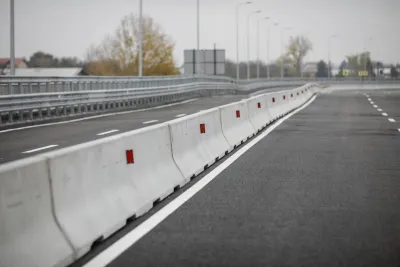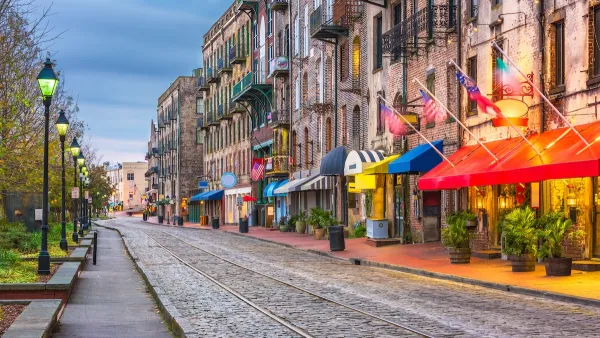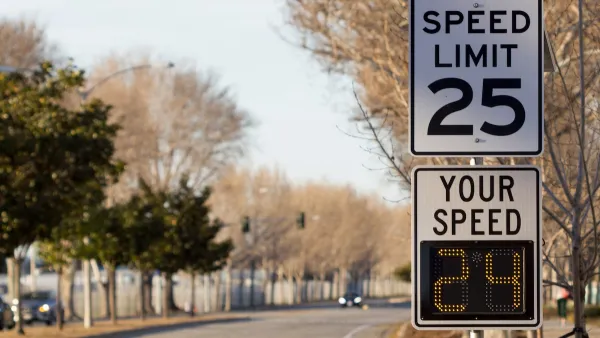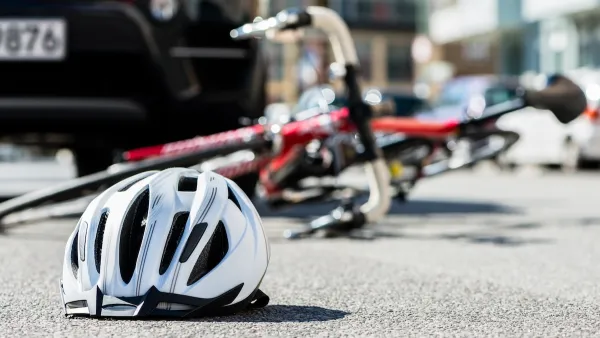The recycled rubber barrier can protect pedestrians and people in cars on lower-speed streets.

A new type of roadway barrier known as the Colorado barrier — a nod to the concrete Jersey barrier — was approved for use on roadways with speed limits of up to 44 miles per hour, reports Ben Thorpe in Equipment World.
The barrier is made of recycled tires. “Manufacturing an 8-foot Colorado Rubber Barrier uses 100 tires, meaning a mile’s worth of barriers uses 65,000 tires. Over 1.8 billion tires end up in landfills or are burned each year, of which 300 million are in the U.S.”
According to the company that independently tested the barrier, the barrier meets the goal of providing “a forgiving roadway and roadside that reduces the risk of a serious crash when a motorist leaves the roadway, as well as towards bystander motorists and pedestrians.” The barriers could reduce damage to vehicles by absorbing more energy, and are lighter and easier to relocate.
FULL STORY: The "Colorado Barrier" Becomes First Rubber Barrier Approved for U.S. Roads

Montreal Mall to Become 6,000 Housing Units
Place Versailles will be transformed into a mixed-use complex over the next 25 years.

Planetizen Federal Action Tracker
A weekly monitor of how Trump’s orders and actions are impacting planners and planning in America.

DARTSpace Platform Streamlines Dallas TOD Application Process
The Dallas transit agency hopes a shorter permitting timeline will boost transit-oriented development around rail stations.

Interactive Map Reveals America's “Shade Deserts”
Launched by UCLA and American Forests to combat heat-related deaths, the tool maps the shade infrastructure for over 360 U.S. cities.

Bicycles and Books — In Sacramento, Libraries Now Offer Both
Adult library card holders can check out e-bikes and e-trikes for up to one week.

Colorado Landfills Emit as Much Pollution as 1M Cars
Landfills are the third-largest source of methane pollution in Colorado, after agriculture and fossil fuel extraction.
Urban Design for Planners 1: Software Tools
This six-course series explores essential urban design concepts using open source software and equips planners with the tools they need to participate fully in the urban design process.
Planning for Universal Design
Learn the tools for implementing Universal Design in planning regulations.
City of Mt Shasta
City of Camden Redevelopment Agency
City of Astoria
Transportation Research & Education Center (TREC) at Portland State University
US High Speed Rail Association
City of Camden Redevelopment Agency
Municipality of Princeton (NJ)





























